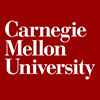Assistant Professor (Tenure-Track) Position: Developmental Cognitive Neuroscience
 Carnegie Mellon University Carnegie Mellon University | |
 United States, Pennsylvania, Pittsburgh | |
 5000 Forbes Avenue (Show on map) | |
 Oct 08, 2025 Oct 08, 2025 | |
|
Carnegie Mellon University: Dietrich College of Humanities and Social Sciences: Psychology Location Pittsburgh, Pa
Open Date Aug 25, 2025 Deadline Oct 10, 2025 at 11:59 PM Eastern Time
Description Description Carnegie Mellon University seeks applications for a tenure-track Assistant Professor in Developmental Cognitive Neuroscience to begin Fall 2026 (start date negotiable). We invite scholars whose research examines cognitive development using human neuroscience methods (e.g., fMRI, EEG, MEG, NIRS, computational modeling, deep neural networks) with a focus on infancy and childhood (0-6 years). Desired content areas are broad and may include learning and memory, language, perception, motor control, spatial and mathematical cognition, social cognition, and executive function. The successful candidate will join a collaborative faculty with established strengths in the Learning Sciences and the Neural Basis of Cognition as well as multiple content areas in child development: visual and auditory perception, object knowledge, categories & concepts, executive function, language acquisition, and mathematical reasoning. We particularly welcome applicants whose theoretical approaches and methodologies create bridges across areas of cognition and connect to complementary strengths in the department and across CMU (e.g., machine learning and artificial intelligence, learning science, decision science, health psychology and social dynamics, translational neuroscience, human-computer interaction). Why CMU Our Psychology Department maintains unique infrastructure for research with children, including The Children's School which is the department's preschool for psychology research. We maintain a state-of-the-art MRI center called BRIDGE, child-friendly MRI equipment, community partnerships and custom participant databases, child testing spaces with eye-trackers and NIRS equipment, child-specific IRBs, and data pipelines optimized for neuroimaging data. We are investing in growth for developmental science, to ensure vibrant mentorship networks for junior scholars and maintain our history of excellence and ground-breaking research in child development. Joint appointments with CMU's Neuroscience Institute or affiliated units may be considered for candidates whose work spans multiple areas. CMU provides highly competitive salaries and start-up packages, robust technical support for human neuroscience and behavioral testing, and a collaborative, interdisciplinary environment in the heart of Pittsburgh, a vibrant and comfortable urban setting. The university is attentive to dual-career considerations and participates in regional networks that assist with partner placement. Learn more about the Department of Psychology and our facilities on our website. Qualifications
Application Instructions Please submit the following materials:
| |


